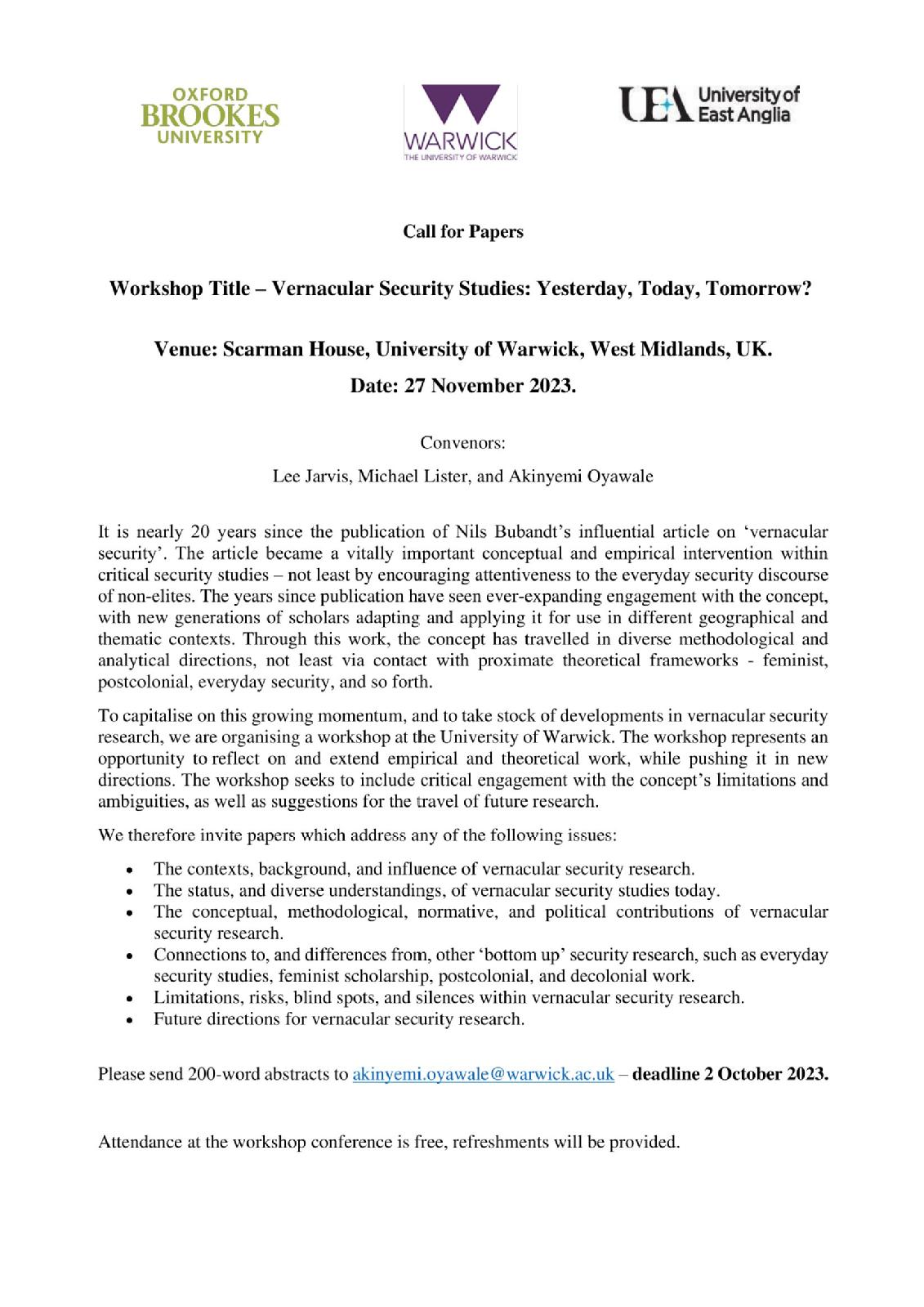News
EASG Talk with Dr. Catherine Jones on Anxious Allies: US engagements in East Asia
Catherine Jones is a lecturer at the University of St Andrews, previously she was a research fellow at the University of Warwick (2012-2018) and received her PhD from the University of Reading. Her research focuses on three areas of work: (1) agency of East Asian states in international order including China's engagement with global order, (2) the China-North Korea relationship, (3) and the politics and development in Southeast Asia. Across these areas she has incorporated wargames and wargaming into her teaching and as an analytical tool for her research. In this context she has particular interests in engaging with diverse perspectives and incorporating voices from less prominent parts of the world.Catherine's talk addresses a critical gap in current literature by highlighting the importance of emotions in understanding alliance dynamics and management. It explores how the wider context, shaped by emotions among the parties, particularly anxiety, heightened tensions and fear, can impact alliance management. In contexts with heightened emotions, reassurance may be more challenging, contrasting with situations lacking an anxious state. This talk draws upon a range of examples in Northeast Asia to demonstrate the variety of effects of anxiety in alliances, providing significant insights for both policy and theory.
Date: Thursday, 23/11/2023Time: 16:15-17:30Venue: Social Sciences Building, Room A0.23
EASG Talk with Dr. Seb Rumsby on Development in Vietnam's Highlands
Dr Seb Rumsby is an interdisciplinary scholar with a wide range of interests including everyday politics, labour exploitation, undocumented migration, ethno-religious politics, grassroots development and non-national histories. Seb unites these diverse themes with an empirical focus on Southeast Asian worlds and people. He completed his PhD at University of Warwick's Department for Politics and International Studies in 2020, before lecturing in Southeast Asian Politics and Queen Mary University of London. He is now a Leverhulme Early Career Fellow at University of Birmingham.
His talk is based on his recently published book Development in Spirit: Religious Transformation and Everyday Politics in Vietnam's Highlands. The effects of development and nation-building projects are always felt unevenly, especially by marginalised communities. But these communities do not lack agency in this process. How do they participate in, negotiate, or resist state-led development? And what role do everyday religious and spiritual practices play therein? In his important new book, Development in Spirit, Seb Rumsby offers an original perspective on how the Hmong communities in the Vietnamese highlands have responded to development initiatives. Centring the everyday political, economic, and religious practices of local residents, Rumsby shows that Christianisation has opened a route to ‘unplanned development’ that put the Hmong on a trajectory both of formal integration into the economy and resistance to state authority and religious persecution.
Date: Tuesday, 17/10/2023
Time: 16:15-17:30
Venue: Zeeman Building, Room A1.01
Vernacular Security: Yesterday, Today and Tomorrow?
You are invited to submit your abstracts for our workshop titled, 'Vernacular Security Studies: Yesterday, Today, Tomorrow?' which will be held at the University of Warwick on 27 November 2023. The deadline for submission is 2 October & please feel free to contact the team (see flier) for further details.
Call for Papers - Vernacular Security Workshop (pdf)

EASG Talk with Professor Hatakeyama on Japan's and Australia's security approaches to China
Date: Thursday 24th August
Time: 12:30 - 14:00
Venue: FAB2.48, Faculty of Arts Building
Professor Hatakeyama is in the UK to connect with UK-based academics and experts to gain insights about the UK's Indo-Pacific policy in the context of 'China's rise', i.e., its assertive irredentist claims in the Indo-Pacific region supported by increased military spending and activity. This is in relation to her current research project that examines the Indo-Pacific policies of the UK, Australia and Japan. Fortunately, she has agreed to give a talk for the EASG on her research in this area which will act as a launching-off point for a broader discussion about the UK's Indo-Pacific policy and the security situation in the region more generally. The paper she is presenting is entitled 'Japan's and Australia's approaches to China: The nature of threat perception and proximity'.
Kyoko Hatakeyama earned her PhD in Politics at Macquarie University in 2008. She has worked at several prestigious universities in Japan and has been a professor at the Department and Graduate School of International Studies and Regional Development at the University of Niigata Prefecture since 2020. She has been a Visiting Research Fellow at Leiden University and is a Japan Fellow at the Asia Society Australia. Her research covers Japan's security policy, peacekeeping, security in Asia and the Indo-Pacific region. Her previous book, Japan's Evolving Security Policy: Militarisation with a Pacifist Tradition, examined Japan's post-Cold War security policy shift.
New Publication: Victor Agboga
PAIS PhD student and incoming LSE Fellow, Victor Agboga has recently published an open access article in Democratization: "How do voters respond to party switching in Africa?" https://www.tandfonline.com/doi/full/10.1080/13510347.2023.2232305
Abstract
Are there electoral consequences for elected politicians who switch from one party to another? Existing research on this question discovered that switchers often perform worse in elections than non-switchers because voters are suspicious of their intentions, especially in older democracies. Nonetheless, few robust studies have been conducted on this in Africa amidst concerns of weak party institutionalization and voters’ passivism, despite the prevalence of switching on the continent and copious existing research on the issue on other continents. I conducted a nationwide representative survey gauging voters’ response to party switching and analysed an original dataset on party switching among African MPs, using Nigeria with over 200 cases of party defection within eight years as a case study. I discovered party switchers in Nigeria, Africa's biggest democracy, performed worse in elections compared to non-switchers, with significant implications for our understanding of voting behaviour in Africa.
